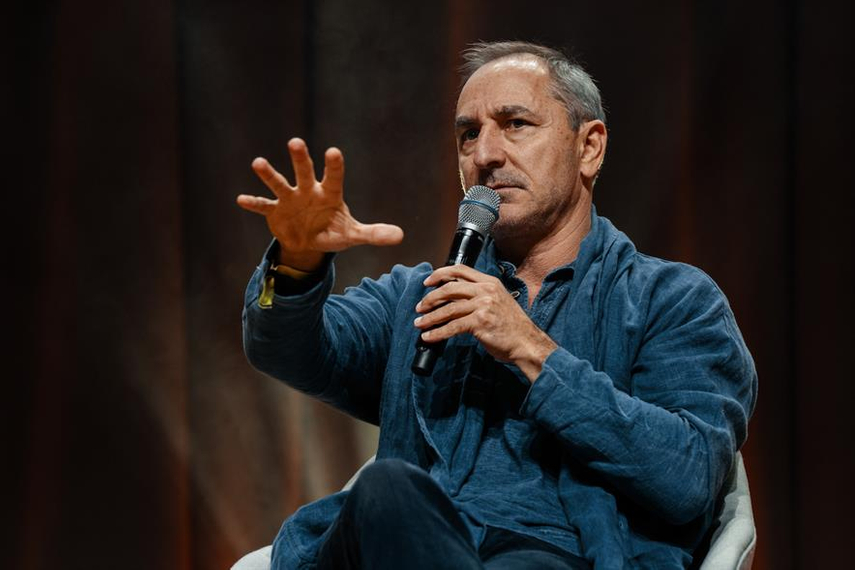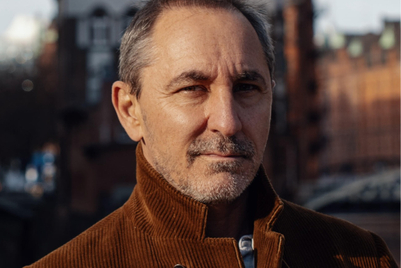
The intersection of creativity and technology is reshaping adland's future, and at the heart of any successful business strategy lies the pursuit of growth and relevance, Accenture Song leader David Droga has claimed.
Speaking at Ciclope Festival in Berlin last week, Droga stressed that growth and relevance are paramount for brands aiming to thrive in today's competitive marketplace.
“The only thing is growth and relevance. That’s all you give a shit about,” he said.
“If you focus on those two things, it stops you from getting set in your ways,” he added. This approach encourages brands to constantly reassess their strategies, ensuring they do not fall into complacency.
For Droga, growth is not merely about increasing profits; it’s about creating opportunities that allow businesses to invest in their people and innovate continuously.
Droga, the founder of Droga5, sold his agency to consulting giant Accenture in 2019 and became chief executive of Accenture Song, the marketing services division, in 2021.
He merged most of its agencies such as Karmarama and Rothco under the Accenture Song brand but has kept Droga5 as a standalone shop within the division.
Accenture Song, formerly known as Accenture Interactive, has operations in 120 countries and generated $18 billion in revenue for 2023. The company's clients include Huggies, Signet Jewelers, Prada and Netflix.
By late 2023 Droga had restructured the business into four main practice areas: marketing; design and digital products; commerce; and customer service.
To strengthen these divisions, he recruited top leaders from leading agencies, such as Annette King, the chief executive of Publicis UK, and Sean Lyons, the global CEO of RGA.
As the industry embraces technological advancements, particularly AI, Droga acknowledged that creativity remains irreplaceable. “AI is going to play a part. It’s not going to replace everything, but it is going to play a part,” he said. While AI can enhance efficiencies and drive data-informed decision-making, it cannot replicate the emotional resonance that human creativity brings to the table, he argued.
The Accenture Song CEO warned that as AI streamlines processes, it risks homogenising creative outputs.
He said: “When everything becomes best practices, then nothing is unique. How do I become distinctive?”
For Droga, this reality highlights the ongoing necessity for brands to carve out their unique identities in an era where AI democratises access to marketing tools and strategies.
Moreover, he stressed that the combination of human creativity and technology is crucial for meaningful advertising.
“There’s a premium for uniqueness,” he said, advocating for an industry that values creativity as a core component of its operations. He envisions a future where creative individuals collaborate with tech professionals, resulting in innovative campaigns that resonate deeply with consumers.
Addressing the role of leadership in advertising, Droga argued that “there need to be more creative people”, highlighting that innovative thinking should permeate all levels of an organisation, not just traditional creative roles. He believes that product-focused individuals, those who understand the implications of their work, will play a vital role in shaping the future of advertising.
“When you look at the companies that are having a profound effect on the world... there are just companies that put product and stuff there,” he said, citing the Apple and Nike brands as examples of this approach.
To cultivate this new breed of leadership, Droga advocated for a more interdisciplinary perspective.
He recalled his experience restructuring teams within Accenture Song, adding: “I’ve taken a lot of those people and taken them out of the studios and started combining them with some people in our tech operations.”
Droga also highlighted the importance of context in modern advertising. “What’s the context in which you wanted to receive it, and now what’s their reaction to it?” he posited, encouraging leaders and creatives alike to think critically about how their messages will be received in various environments.
He concluded: “Responsible people make the world go round, but creative people make it worth living in.”



.jpg&h=334&w=500&q=100&v=20250320&c=1)

+(900+x+600+px)+(3).png&h=334&w=500&q=100&v=20250320&c=1)




.jpg&h=334&w=500&q=100&v=20250320&c=1)



.png&h=268&w=401&q=100&v=20250320&c=1)


.jpg&h=268&w=401&q=100&v=20250320&c=1)

